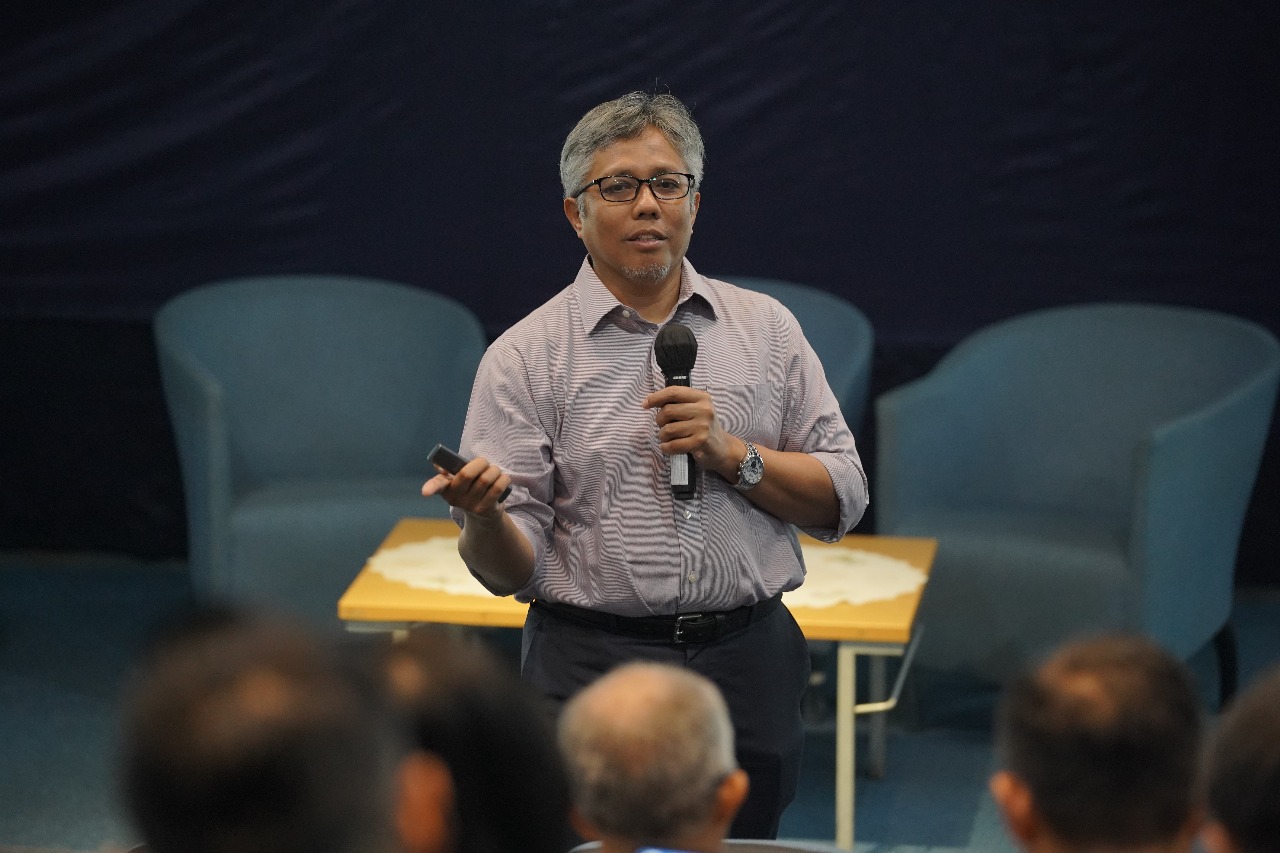SUSPIM ITB 2011: Vice Rector of Research and Innovation (WRRI)
By UKM Student English Forum
Editor UKM Student English Forum

 BANDUNG, itb.ac.id - As written in Development Master Plan (RENIP) 2006-2025, ITB's vision in 2025 is to establish an institution of higher education with high competence on research, science, and technology. In order to accomplish the vision, Vice Rector of Research and Innovation (WRRI), Dr. Wawan Gunawan A. Kadir with the team, has established the system for management and development in research, community development, and innovation. The policy was presented in Management and Development System Seminar, ITB Principals Summit (SUSPIM) 2011 on Thursday, (13/01/11) at room ANNEX 3, ITB.
BANDUNG, itb.ac.id - As written in Development Master Plan (RENIP) 2006-2025, ITB's vision in 2025 is to establish an institution of higher education with high competence on research, science, and technology. In order to accomplish the vision, Vice Rector of Research and Innovation (WRRI), Dr. Wawan Gunawan A. Kadir with the team, has established the system for management and development in research, community development, and innovation. The policy was presented in Management and Development System Seminar, ITB Principals Summit (SUSPIM) 2011 on Thursday, (13/01/11) at room ANNEX 3, ITB.
Vice Rector of Research and Innovation
ITB's vision for 2011-2015 is to emerge as a reputable research university in Asia, whose focuses are sciences, technology, and arts and and to do concrete contribution to increase the nation's competitiveness. WRRI and team has set up several objectives to accomplish in 2015.
The objectives are as follows: to establish at least three research and develpment centers, to become both the national and international focal point for research cooperation, to set up technology parks, to establish a qualified research center that conducts ITB research priorities, to achieve critical mass in the number of lecturers actively involved in research.
The increase in the following parameters are determined as the indicators of ITB research development: the research budget, the number of MoU for national and international joint research, the number of publication in international journals, the number of lecturers whose publication is accepted in international journals, the number of patents, and the number of international seminar proceedings.
The disciplines for research and innovation in 2011-2015 are research, community development, and innovation and enterpreneurship.
The following programs are set for research: the increase in Internal Rsearch Budget (DPI); the increase participation of postgraduate students in researches; ITB's publication in international journals; establishing world class research infrastructure; developing promotion center for sciences, technology, and arts products; and the products' commercialization and knowledge transfer.
Below are the programs for community development: the increased partnership for local potentials' empowerment, development of applied technology, preparing Bandung and West Java as pilot project for community development programs, and ICT development to document Indonesian local wisdom.
The programs for innovation and enterpreneurship are the establishment of ITB innovation and enterpreneurship center; counseling for new enterpreneurs; development of healthy and well coordinated business incubation; and the development of technology that is feasible both for the economy and business, and is ready to be launched to industry.

.jpg)

.jpg)
.jpg)
.jpg)
